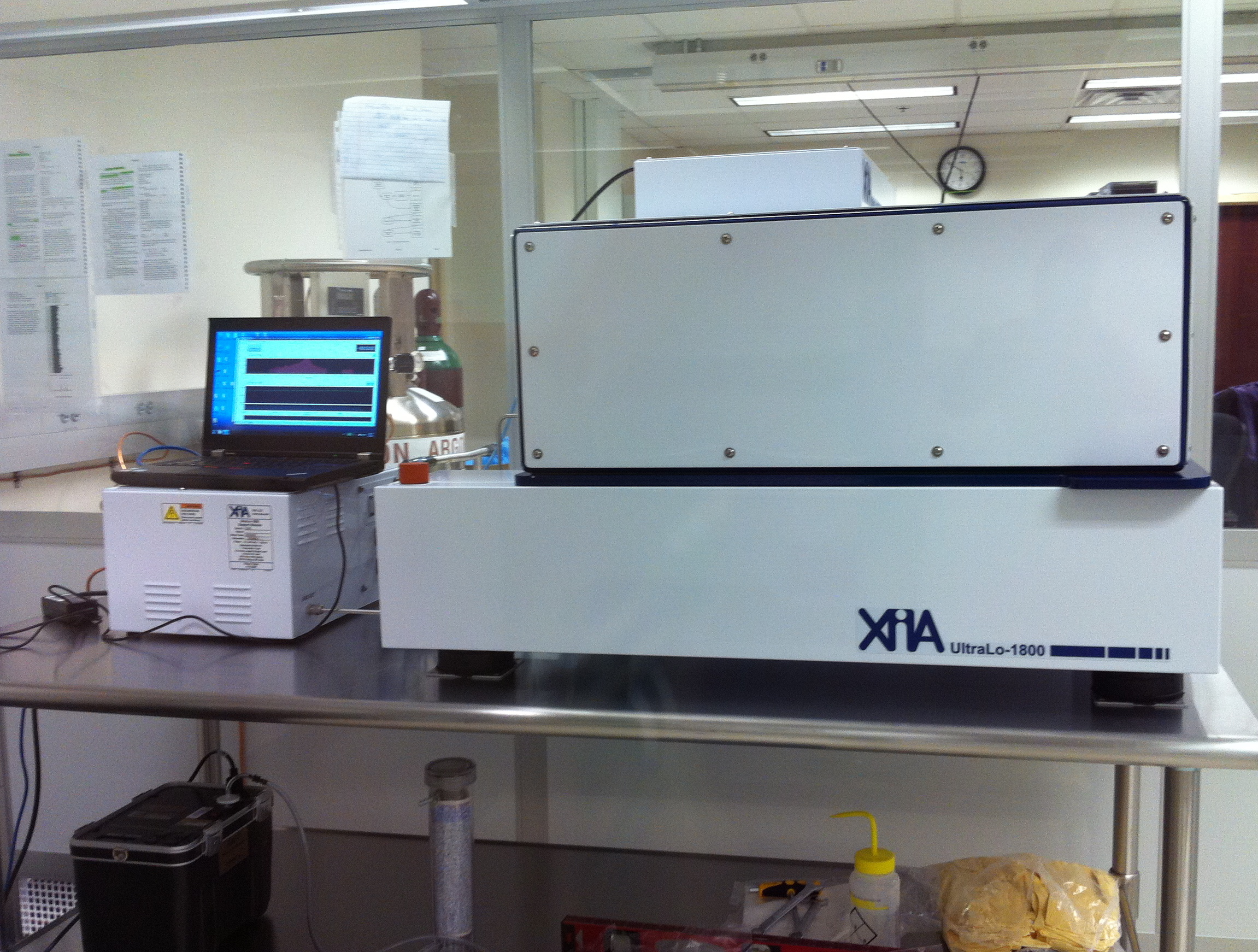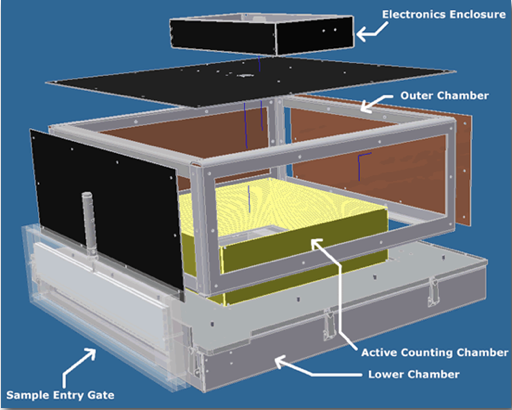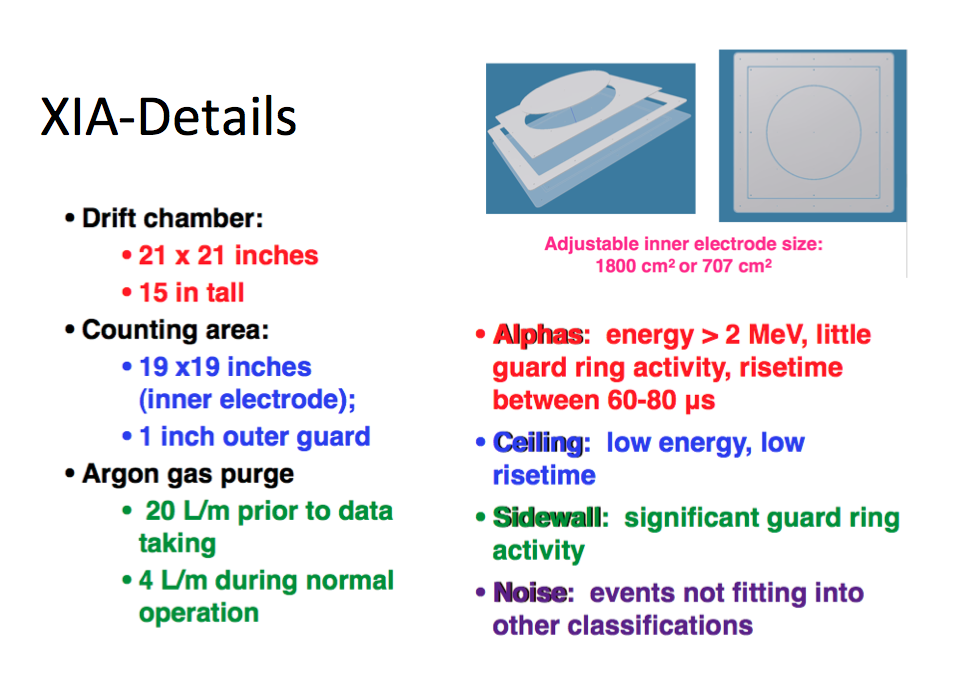LUMINA
We named our laboratory LUMINA (Laboratory for Ultra-pure Material, Isotope and Neutron Assessment) because we know that in order to illuminate the puzzle of dark matter we must operate our experiment in a mode where our backgrounds are under control. This means that our backgrounds (particles that can mimic dark matter) are as low as possible and that any that remain are well understood. We address this problem in our laboratory through a variety of techniques that includes our XIA alpha-particle counter named Peruna, simulations and calculations of neutron backgrounds, and data analysis. On this page you can learn more about Peruna and the facilities in our lab.
Introduction: Peruna at SMU

Most materials emit alpha particles, either because they contain trace amounts of radioactive materials or because they have been contaminated by contact with radioactive materials, most commonly radon in the atmosphere. The ability to measure materials’ alpha particle emissivity (typically expressed as alpha/cm2-hr) therefore becomes important in applications that are sensitive to alpha particles. These include low background fundamental physics experiments - e.g. search for rare decay as direct dark matter searches and neutrino detection measurements - nuclear activities and environmental monitoring, and semiconductor packaging materials production.
Technical Features
The UltraLo-1800 is a revolutionary design that employs Electronic Background Suppression to drive achievable background rates to 0.0005 alpha/cm2/hr or lower. This is a factor of 50 or more better than can be achieved by the conventional proportional counter systems that are now commercially available.
- Measure sample emissivities to 0.0002 alpha/cm2/hr and below
- Large sample area - accepting samples up to 1800 cm2
- Accurate results in much shorter counting times


Links for the Public
Learn more about the activities of the SuperCDMS collaboration at our collaboration's homepage:
Learn more about the activities of the AARM collaboration at the collaboration's wiki page:
Links for Collaborators (password protected)
Latest News
-
February 22, 2019:
The BRN workshop report on Needs for Small Scale Dark Matter Projects is out! Details here.. -
November 27, 2018:
Dr. Jodi Cooley is elected a fellow of the American Association for the Advancement of Science (AAAS). More details here. -
August 27, 2018:
Our paper on eneergy loss due to defect formation in our detectors was chosen as an Editors Pick for APL! Read more here.